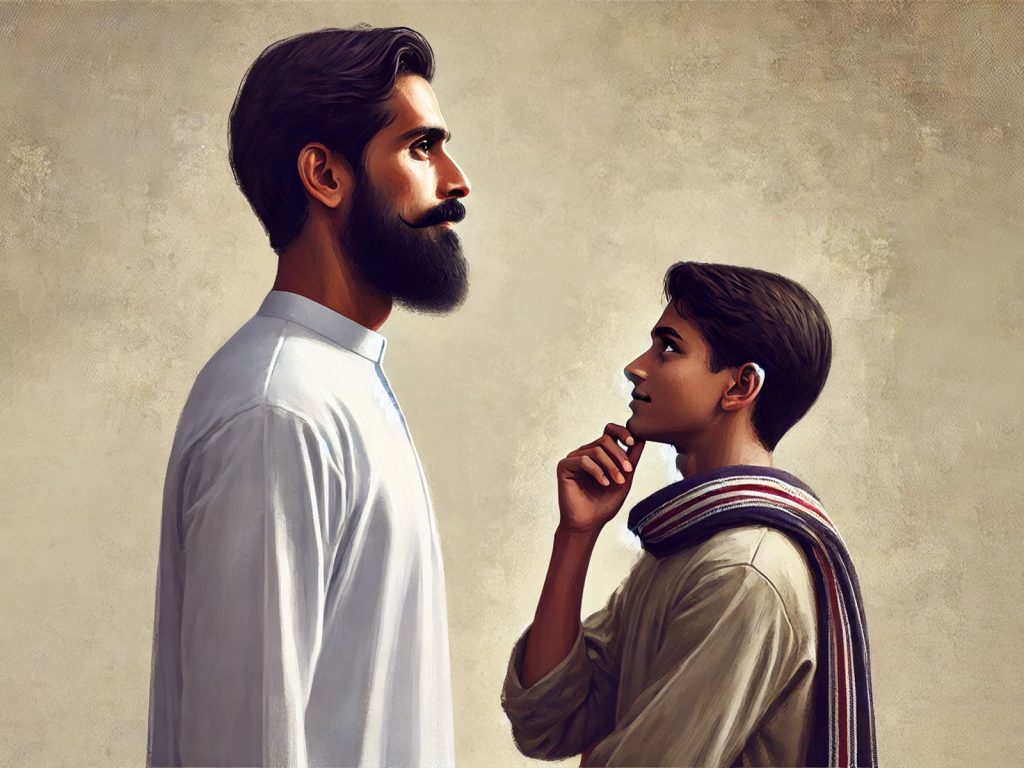Depression and anxiety are th most common psychological issues among people, affecting approximately 19.01% and 28.08% of the population, respectively. Research indicates that “social comparison” is closely linked to the development and persistence of depression and anxiety.
To read the full article, refer to [1].
Psychologists consider comparison to be one of the main causes of anxiety.
In the introduction of the aforementioned article, numerous studies on this subject are referenced.
On the one hand, humans are inherently social beings, and on the other, people in a society differ in terms of knowledge, wealth, occupation, and so on.
As a result, comparison naturally occurs in our lives. Comparison is a double-edged sword; it can bring either peace or anxiety.
Comparison can be upward, downward, or at the same level. In scholarly articles, these terms are referred to as upward comparison and downward comparison. This means that if a person compares themselves to someone better off, this is an upward comparison; if they compare to someone worse off, it is a downward comparison. For example, if a person with a specific income compares themselves to someone with less income, this is a downward comparison; if they compare to someone with a higher income, it is an upward comparison; and if they compare to someone with the same income, it is a comparison at the same level.
In material matters, upward comparison can lead to anxiety, whereas downward comparison can bring peace to a person.
The Holy Qur’an cautions Muslims that the wealth and offspring of others should not astonish or excite them.[2]
It is narrated from Salman that “My friend, the Messenger of God (peace and blessings be upon him and his family), advised me in seven matters, one of which was to look at those below me in worldly affairs and not to look at those above me.”[3]
In other words, worldly comparisons should be downward. Certain societal issues, such as wealth competitions and rivalry driven by envy, stem from upward comparisons.
However, beyond anxiety, upward comparison has additional negative effects, one of which is envy. A person who constantly engages in upward comparison may develop feelings of envy.
The Holy Qur’an states: “Or do they envy people for what God has given them of His bounty?”[4]
Imam Sadiq (peace be upon him) also said: “…the miser has no peace, and the envious has no pleasure or joy.”[5]
Another negative effect of upward comparison is the onset of depression, despair, and hopelessness.
In a narration, the Prophet of God (peace and blessings be upon him and his family) said, “Whoever looks to the wealth of others, their sorrow will last long, and their grief will persist.”[6]
A person who constantly compares themselves to those above in material matters will gradually feel despair and regret, as they see themselves as incapable of achieving what others have.
But if we engage in downward comparison in material matters, we will be content with what we have, and gratitude will always be present within us.[7]
Such a person will not feel a sense of lack or deficiency, and their soul will be at peace. Of course, this comparison only removes feelings of dissatisfaction and discontent, not effort and activity, and should not diminish reasonable efforts to improve one’s life.
In spiritual matters, looking up to those who excel in piety and devotion to God is highly recommended and praiseworthy. It helps prevent vanity, pride, and delusions. This type of comparison can be a factor for growth and development, enabling us to reach higher levels. If comparison is downward in material matters and upward in spiritual matters, it creates balance within a person.
(Taken from the words of Hujjat al-Islam Dr. Nasser Rafi’i with some additions and modifications)
Tags: mental tranquility
Footnotes:
[1] Professor Morina, researcher and professor in the field of clinical psychology.
[2] (Surah Tawbah, Ayah 55)
[3] Al-Mahasin, vol. 1, p. 11
[4] (Surah An-Nisa, Ayah 54)
[5] Al-Khisal by Sheikh Saduq, p. 271
[6] Mizan al-Hikmah by Muhammad al-Rishahri, vol. 1, p. 610
[7] Bihar al-Anwar, vol. 67, p. 173


